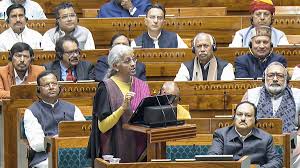As our special story concludes, Rajan Nijhawan reflects on how GSSAs are evolving into strategic, tech-enabled partners, bringing together compliance, intelligence, and agility to meet the demands of modern air cargo relationships.

The GSSA transformation
“GSSAs must be intelligence hubs, not just space sellers”
In the final leg of our journey through India’s evolving air cargo landscape, Rajan Nijhawan, VP – Sales, India, Air Logistics Group, offers a fitting close: “The modern GSSA is no longer just a sales agent but a market intelligence hub, digital enabler and customer experience manager.” His words encapsulate the shift we’ve seen across the industry, from manual miles to intelligent ecosystems.
Airlines today expect more than transactional support. “There is a lot of focus on digitising distribution via online booking portals and API-based integrations,” Nijhawan explains. GSSAs must now deliver real-time insights, strategic planning, and seamless digital access. The role has expanded to include tools like WACD, Seabury, Clive, and PowerBI, which help teams analyse performance across corporate, regional, and local levels.
Balancing multiple brands with integrity
Representing multiple airlines is a delicate dance. “Managing potential conflicts of interest and ensuring brand integrity for each airline is tricky,” says Nijhawan. The solution lies in operational clarity: separate teams, firewalls, and distinct KPIs for each airline ensure loyalty and transparency. It’s a model that prioritises trust, something every stakeholder in air cargo now demands.
Compliance as a cornerstone
As global regulations tighten, GSSAs are stepping up to meet complex compliance demands. “Airlines often have their own global compliance and safety policies,” Nijhawan notes. GSSAs must align with these while navigating local legal frameworks. This includes financial reporting, data handling, cargo security, DG standards, and ethical marketing.
“Success depends on a structured compliance culture supported by local legal knowledge, central oversight, and technology-driven monitoring,” he says. Regular training on anti-corruption, GDPR, and aviation safety ensures teams stay ahead of the curve.
Strategic support in volatile times
While GSSAs don’t directly influence tariff policy, they play a vital role in helping airlines adapt. “We can only provide respective airlines with market intelligence and suggestions on route optimisation,” Nijhawan explains. This includes advising on capacity shifts, reducing flights on low-profit lanes and reallocating to stronger corridors. When airlines identify green or emerging routes, GSSAs go all out to support them. “We focus on optimising loads to offset the losses,” he adds, showing how agility and insight can turn volatility into opportunity.
Closing the loop: A connected future
From Dr Joshua Ebenezer’s call for customs clarity to Amit Maheshwari’s vision of intelligent ecosystems, from Chandrakala Bobba’s precision in cold chain operations to Gangadhar Reddy’s multimodal agility, and from Raj Dhawan’s empathy-driven live cargo logistics to Sandeep Prabhakar’s digital freight orchestration, this special story has traced the contours of a sector in transformation. Rajan Nijhawan’s insights bring it full circle. The future of air cargo isn’t just about speed or scale; it’s about connection, compliance, and intelligence. As India’s air cargo industry embraces smarter systems, ethical governance, and collaborative innovation, the skies ahead are not just open; they’re aligned for altitude.











